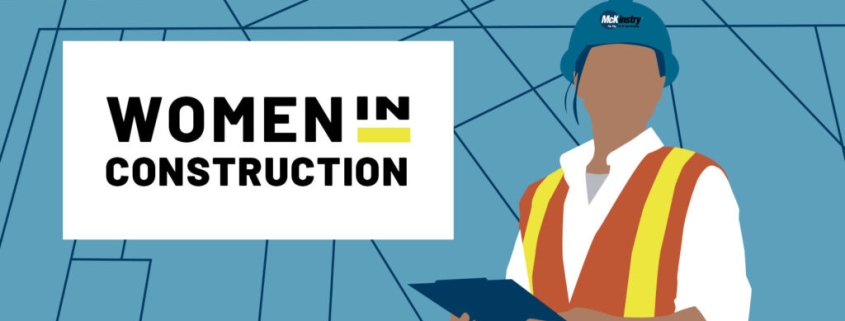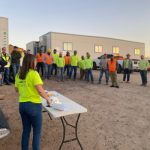Women in Construction Event Talks Recruiting, Retention
By | Originally posted on yahoo.com
May 3—TRAVERSE CITY — Creating a diverse staff can mean many different things.
So can the solutions.
“Diversify Your Crew” was the subject of the fourth Windemuller Women in Construction event on Thursday at Delamar Traverse City. Held solely in TC for the first time, the event drew more than 100 in-person and another 40 virtual participants for an hour-long panel discussion on ways to attract and retain more workers in the trades.
“Diversity means a lot of things,” Team Elmer’s Communications and Marketing Director Tonya Wildfong said. “It could be gender, it could be ethnicity, it could be age, it could be neurodiversity.
“It could be physical limitations. It’s many different things.”
Wildfong was joined on the panel by Surfaces, Inc. co-owner Shari Fouch Prevost and Windemuller Senior Field Operations Manager Devin Hill. The panel was moderated by Builders Exchange of Northwest Michigan Executive Director Lisa Leedy.
A proprietary model from the Associated Builders and Contractors earlier this year estimated the construction industry needs to attract 546,000 additional workers “on top of the normal pace of hiring in 2023 to meet the demand for labor.”
So whatever the industry can do to attract more workers is needed.
“It’s a challenge in our industry and something we have to address,” Wildfong said.
“We just need to spread the word,” Prevost said, noting skilled trades can make 20-30 percent more than other work. “Everyone needs people.”
Construction and other skilled-trades companies need to create a place where all are welcome to not only work, but are given a chance to thrive.
Hill said there needs to be a shift in the culture away from that of it being a “man’s world.” Wildfong and Hill said this often leads to different forms of bullying and harassment, which need to cease.
“We have to create that safe workplace, that workplace where everyone feels safe every day,” said Hill, who also said men need to stop the process of talking to women in a condescending manner or “mansplaining.” “We have to change the narrative. … It’s creating that culture of family where you’re protecting each other … We’re protecting our brothers, we’re protecting our sisters.”
Wildfong said creating a culture of inclusion operates most effectively when it’s done by coworkers, making it not top down, but “side to side.”
In addition to filling workforce gaps, a diverse workforce has other benefits.
“You get more ideas the more diverse your workforce is,” Prevost said.
Wildfong said “everyone has a talent” and can find it in the varied world of construction. “A career in construction can look like anything,” she said.
Leedy said a diverse workforce “will also improve the bottom line” and cited recent data showing there were about 23% fewer men ages 16-24 in construction in the first quarter of 2023 while women in the same age group are showing the inverse.
Mentorships are also important in identifying, attracting and retaining a diverse workforce, especially getting more women into the construction field. Treating everyone fairly — woman or man — is the way for the industry to move forward.
Wildfong said skill training is also vital so each stepping stone can “build a bridge toward promotion.”
Several panelists said construction managers need to listen when staff have questions. Hill said employees who are paid fairly and “feel like they are heard” stay in the business.
A work-life balance also goes a long way. Prevost said workers shouldn’t be afraid to advocate for themselves, especially in such a competitive job market.
“That’s what we do Day One,” Prevost said of the time outside of work. “We’re flexible with family across the board.”
Hill said the trades have an excellent training resource available through Northwestern Michigan College.
But it also comes down to creating a picture of offering a diverse crew in the workplace.
“Image is powerful,” Wildfong said. “If you can see it, you can be it.”
“Who are our best recruiters?” Hill asked the assembled audience.
“We are,” Hill said, repeating the response from the room.
Hill added the industry needs to continue to reach out to students and other school officials throughout the region and cited a recent gathering of school counselors earlier that week, noting just one of those was male.
Leedy talked about approaching all ages about opportunities in the field of construction — she did that while a Girl Scout troop leader in years past and will do the same with her new granddaughter born earlier in the week, whom Hill jokingly asked if she was interested in a job.
“It’s looking at generations to create a pathway for the skilled trades,” Leedy said.



